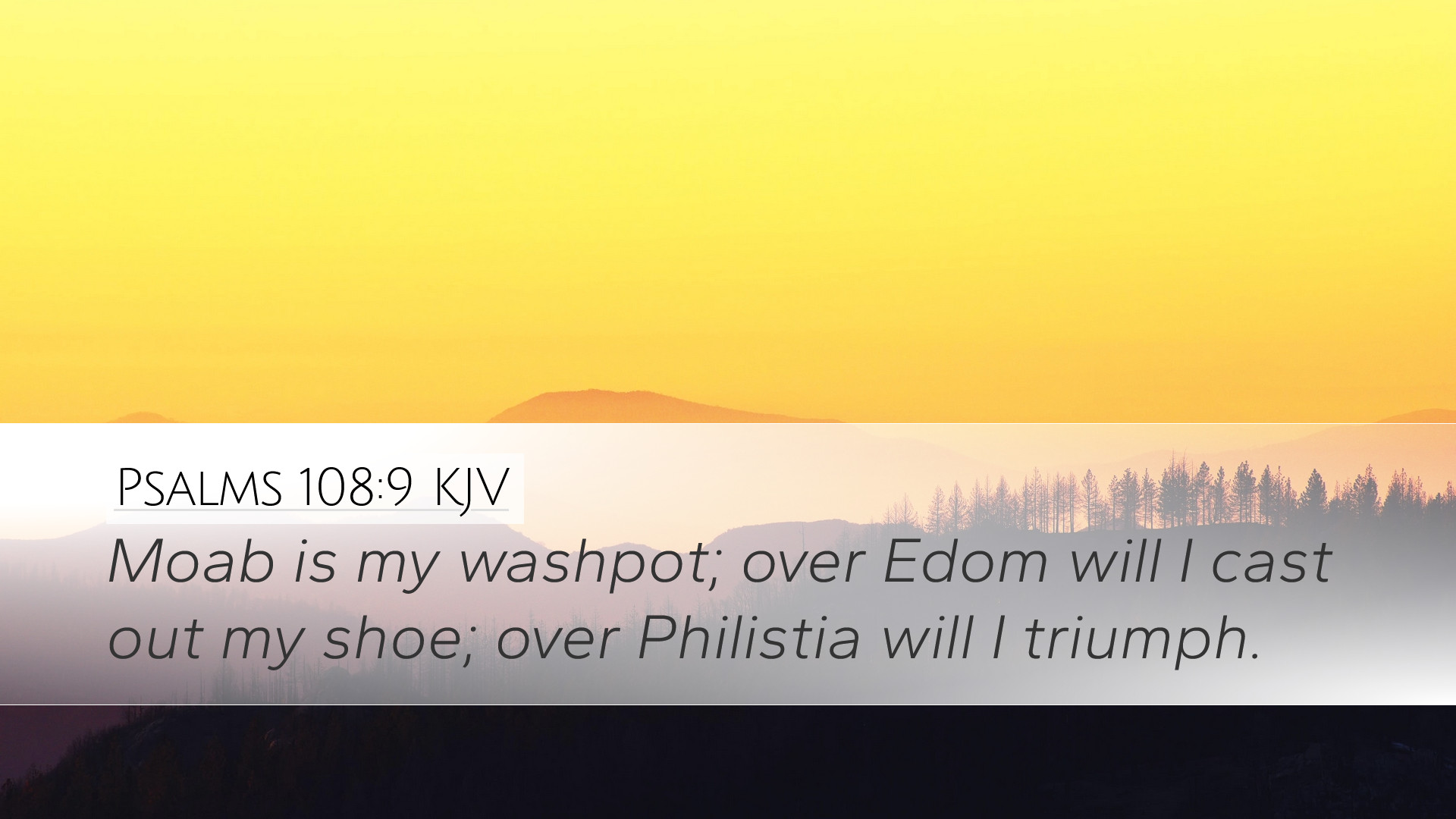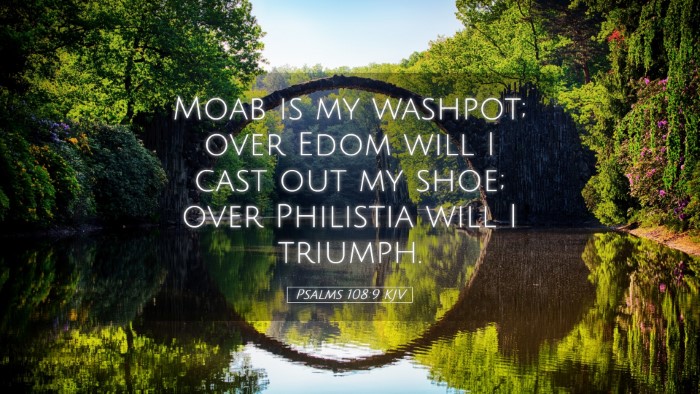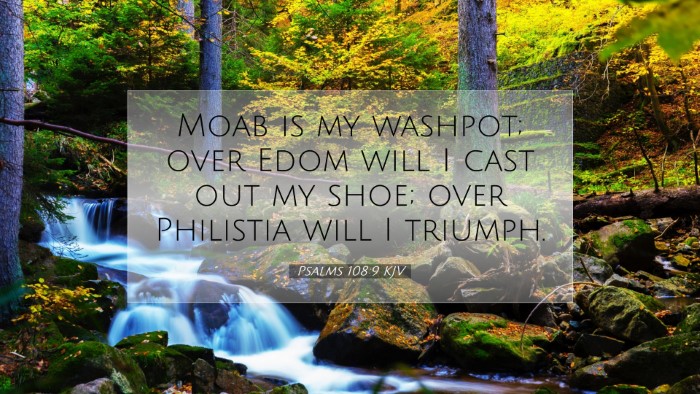Commentary on Psalms 108:9
Psalms 108:9 states: "Moab is my washpot; over Edom will I cast out my shoe; over Palestine will I shout aloud." This verse offers a striking pronouncement concerning the Lord's sovereignty over nations and His ultimate authority in delivering His people from their enemies. To thoroughly understand this profound declaration, insights from esteemed public domain commentaries such as those by Matthew Henry, Albert Barnes, and Adam Clarke provide a rich tapestry of interpretation and application.
Contextual Analysis
Before delving into the individual components of this verse, it is essential to consider the broader context of Psalm 108. This psalm is a compilation of portions from Psalms 57 and 60, emphasizing the themes of divine help and national victory against oppressors. The psalmist begins with a declaration of praise and yearning for divine assistance in battle. This sets the stage for the authoritative statements about Moab, Edom, and Philistia.
Interpretation of Terms
-
Moab: Symbolically referred to as the "washpot," Moab represents a nation of humiliation and subjugation. Matthew Henry emphasizes that this designation reflects the utter defeat and derision the Moabites would experience at the hands of Israel. Their lowly status serves as a metaphor for God's judgment upon them.
-
Edom: The phrase "over Edom will I cast out my shoe" signifies dominion and control. According to Albert Barnes, casting one’s shoe denotes absolute authority, as shoes were often seen as symbols of ownership and possession. Thus, the act of casting a shoe over Edom implies that the Israelites will have the upper hand, asserting their position in the covenant community under God's favor.
-
Philistia (Palestine): The concluding phrase about Philistia or Palestine incorporates an exclamation of victory. Adam Clarke notes that this represents the psalmist’s confidence in proclaiming God’s triumph over adversaries. The "shouting aloud" signifies not only joy but also a prophetic declaration of the defeat of their enemies.
Theological Implications
This verse raises significant theological discourse regarding God’s sovereignty, the nature of divine warfare, and the reality of spiritual oppression. The humorous mocking of Moab as a "washpot" underscores the reality that nations and powers may rise, but in the ultimate scheme, they are under God’s dominion. The psalmist asserts that God’s plan will prevail.
The position of Israel as God’s chosen people is reaffirmed—despite their trials, their fate is intertwined with divine providence. In the context of modern Christianity, believers can find assurance that regardless of adversities, God reigns supreme and fights for His people, much like He did for Israel.
Application for Believers
For pastors, students, and theologians, Psalms 108:9 serves as a reminder of God’s victory over spiritual forces that oppress individuals and communities. Reflecting on this scripture encourages believers to approach their challenges with the confidence that comes from knowing God fights for them.
Matthew Henry posits that such confidence should lead to a posture of worship, trust, and dedication in service to God. It not only inspires personal faith but also collectively encourages the church to proclaim God's greatness and His mighty acts. The verse beckons us to recognize where we find ourselves in God's grand narrative, urging faithfulness amid trials.
Conclusion
Psalms 108:9 encapsulates profound insights into God's sovereignty over nations and His determination to deliver His people from adversity. Public domain commentaries enhance our understanding of the historical, cultural, and theological contexts of the text, allowing pastors and scholars to mine deep treasures that speak to the heart of the believer today. The humorously stark portrayal of Moab, the authoritative act towards Edom, and the celebrative shout over Palestine collectively remind us of our God, who is a warrior on behalf of His beloved.


